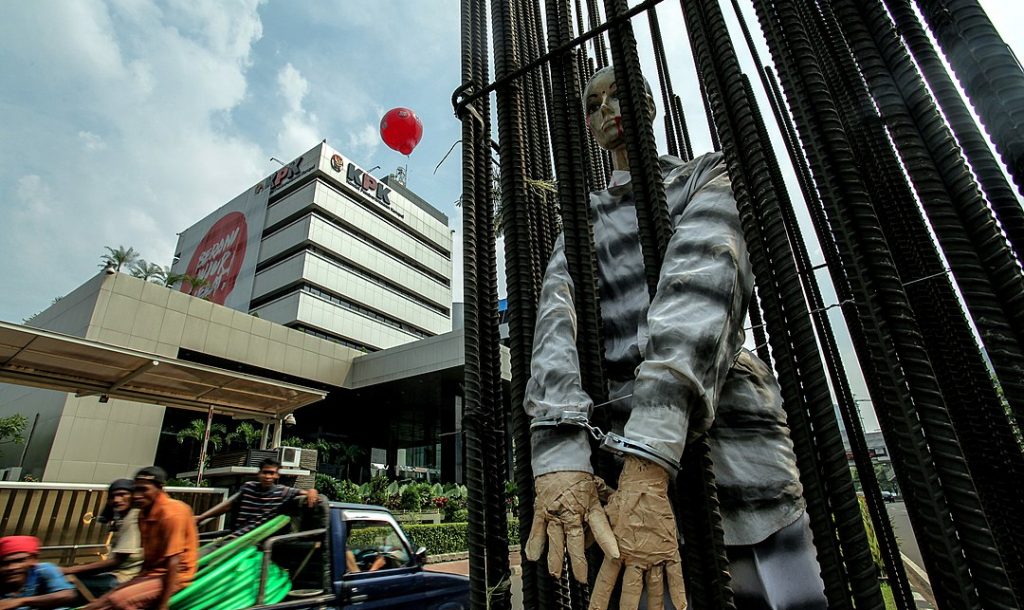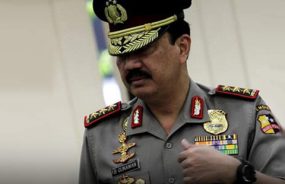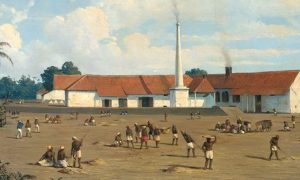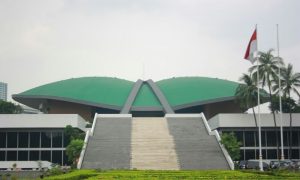Corporate tsars and the political powerful rarely back independent probes into official misconduct—unless limited to their rivals. Canberra has yet to debate such an authority, while next door Indonesia’s oligarchs are destroying their Komisi Pemberantasan Korupsi (Corruption Eradication Commission), not with a bang, which might alarm, but with many whimpers.
In 1998 Indonesia’s second president Soeharto resigned during the Asian Financial Crisis when huge crowds demanded democracy and an end to avarice. During the authoritarian kleptocrat’s 32 years in power, his family reportedly amassed US $30 billion by plundering the public purse and demanding bribes. The former general was never prosecuted and died in 2008. The money has not been recovered.
The KPK was established in December 2003 during the presidency of Megawati Sukarnoputri, though the foundations had been laid earlier when the liberal cleric Abdurrahman Wahid (aka Gus Dur) ruled (1999 – 2001). The political atmosphere at the time was heady with the promise of starting afresh and washing away the filth from decades of palm-greasing staining the nation’s name and known as KKN – Korupsi, Kolusi, Nepotisme.
The Commission set about its duties with energy and positive publicity. Early hits were a who’s who of oligarchs, government ministers, corporate crooks and high-profile socialites. One of the most sickening cases involved former social affairs minister Juliari Peter Batubara, a Protestant member of the ruling Partai Demokrasi Indonesia Perjuangan, (PDI-P Indonesian Democratic Party of Struggle). The spiv was jailed for 12 years for trousering $2.25 million from funds budgeted to buy COVID-19 relief packages for the poor.
Is the battle between Indonesia's corruption commission and national police a sign of the difficulties to come for President Jokowi, asks Jacqueline Hicks.
KPK v Polri: a proxy conflict?
Like many fellow malefactors, Batubara realised too late that the KPK was not like other authorities allegedly ready to drop investigations in return for cash-stuffed envelopes. Its formidable powers included warrantless wiretaps, travel bans, freezing bank accounts and detaining suspects. During the golden years, the Untouchables were TV news regulars hustling famous names into cars after late-night raids on sky-level homes and offices.
With a 100 per cent success rate, the KPK rapidly became the most trusted and supported agency in Indonesia, peaking in 2013 with the Ramon Magsaysay Award, named after the former Philippine President who had a reputation for integrity and idealism. The prize has been run since 1957 by the NY-based Rockefeller Brothers’ Trust Fund. It called the KPK “a fiercely independent government body that serves as a symbol of hope and reform.” It wouldn’t say that now.
When the current president Joko Widodo won his first five-year term in 2014 supporters were certain he’d support the overworked KPK facing a backlog of 16,200 cases. They expected an idealist but got a pragmatist who’d rather concentrate on his nation’s infrastructure than its integrity. Ironically he also wants overseas money, though ethical Western investors shun countries that tolerate dirty deals. (Some nations like the US, the UK and Australia, have laws where citizens can be prosecuted in their homeland for bribing bureaucrats abroad.)
Presidential Chief of Staff Moeldoko seemed unaware his country had ratified the UN Convention against Corruption when he allegedly dubbed the KPK “a hindrance to investment”. Though he later added that he meant the KPK law, it seemed he’d revealed the administration’s real concerns.
Because the Commission had widespread support the erosion has been subtle. The agency needed to focus more on graft prevention than law enforcement, according to new chair Firli Bahuri, appointed by Widodo in 2019 for a five-year term. This was despite the KPK Ethics Council having found him guilty of a “gross violation” by allegedly alerting a suspect.
The former Commissioner General of Police had enjoyed a lacklustre career in uniform, though a shining contact list which includes Megawati. The unchallenged queen of the ruling PDI-P is rumoured to be Widodo’s dalang (puppet master). Last October the daughter of first president Soekarno (1945-65) got the job of chairing the steering committee of the National Research and Innovation Agency, an amalgamation of five state institutions. The appointment startled the academic community hoping for leadership from an internationally acclaimed scientist. There are a few like US-educated physicist Yohanes Surya, though Indonesia has no Nobel laureates.
Megawati, 75, failed to complete her studies at two unis (agriculture at one, psychology at another), but now holds nine honorary doctorates. Despite her lack of qualifications she’s apparently “obsessed” with science, an interest she’s kept secret till now.
But away from perceived nepotism and back to the KPK. Bahuri’s changes included ordering long-term investigators who’d put many brigands behind bars, to take a civil service examination. They reportedly included personal queries: “Why are you not married at this age? Do you still have a desire? Do you want to be my second wife? What do you do when you’re dating?” Fifty-one failed the test and were kicked out. Widodo reportedly said he didn’t want the staff ousted and neither did the public. Their concerns made no difference.
Among the rejects was Indonesia’s Eliot Ness, Novel Baswedan who’d lost an eye when hydrochloric acid was thrown in his face after he left a mosque. He’d been investigating allegations of police force wrongdoings and a case involving politicians collecting bribes through an ID electronic card project
In a curious development, Baswedan and his sacked colleagues were then offered jobs with the police.
The KPK rot continued within. In September 2020 the agency’s Supervisory Council found Bahuri guilty of indulging in a “hedonistic lifestyle” after he chartered a helicopter to fly home. He was tickled with a written reprimand and kept his job. Last September KPK deputy Lili Pintauli Siregar tipped off a North Sumatra city mayor that he was a suspect. The law says KPK leaders could face up to five years in jail for alerting anyone under investigation. Her salary was docked Rp 1.85 million (AUD 181) a month. No big deal. Her allowances are ten times that sum. If the KPK’s bosses don’t follow the rules, why should others bother?
Zaenur Rohman of Gadjah Mada University’s Centre for Anticorruption Studies reportedly said: “The KPK had its worst record in handling corruption cases. In fact, the Attorney General’s Office performed better, handling corruption cases involving (state insurance companies) Jiwasraya and Asabri that involved trillions of rupiah in state losses.”
An editorial in The Jakarta Post commented pithily: “Things are really dire if the AGO, an agency not known for its integrity or good performance, outdid the KPK.”
Just before 2021 ended Widodo addressed KPK staff on International Anti-corruption Day. He didn’t order hard-line persecution of crims as the public demands (some have called for the death penalty), but went soft: “Corruption eradication should not only mean an arrest being made. Preventing corruption is more fundamental.” So the archipelago’s streetscapes are now befouled with big posters featuring men in uniform telling citizens to neither give nor receive bribes, though it is common knowledge this remains the best way to get bureaucrats to perform their duties and do so speedily. Government departments and uni campuses declare they are graft-free zones as though immoral behaviour is like a virus.
The education-not-prosecution line has been followed by Bahuri who, unlike Yale psychologist Paul Bloom, doesn’t believe we have an innate sense of right and wrong. Bahuri wants parents to instil moral behaviours in their kiddies “so that an anti-corruption mentality is built and formed in every individual in this Republic.”
There has been change—downwards. A decade ago Transparency International’s Corruption Perception Index ranked Indonesia 96 among 179 nations. Its position now is 102.
 Facebook
Facebook  Twitter
Twitter  Soundcloud
Soundcloud  Youtube
Youtube  Rss
Rss 



